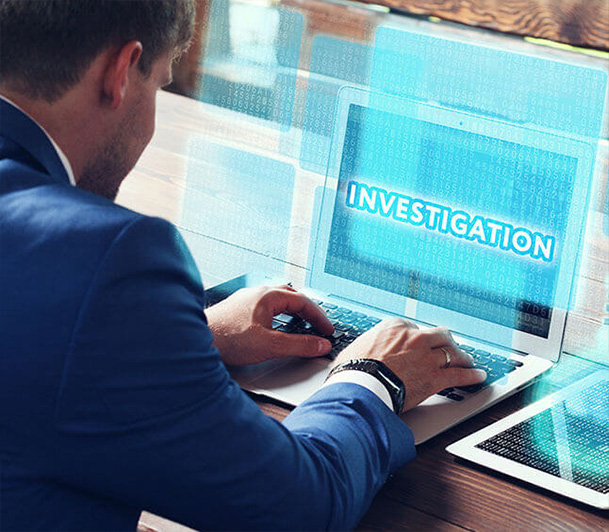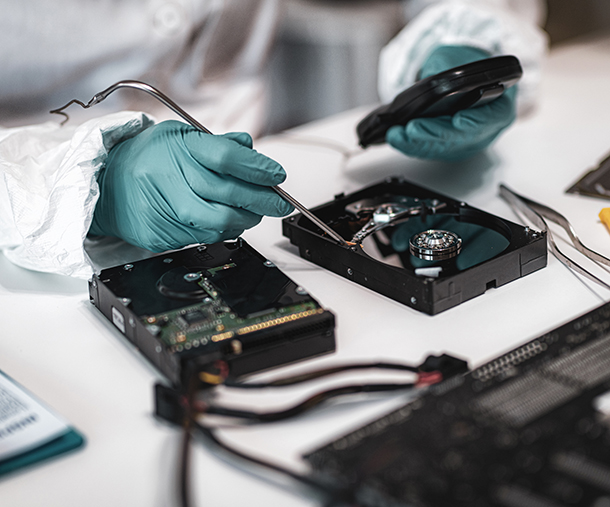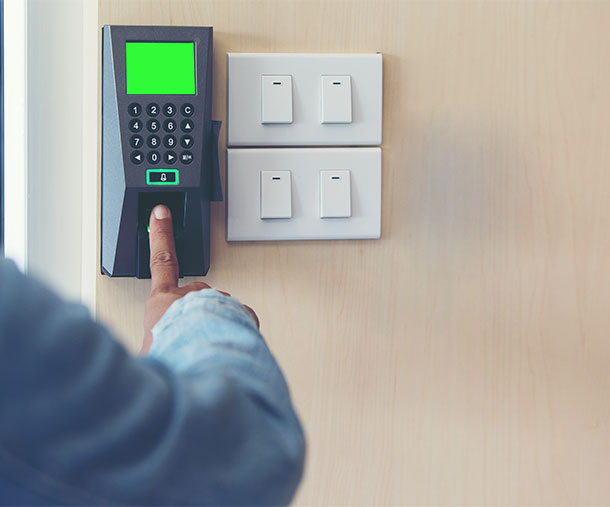
Earlier this week, I was able to speak with Dan Ribacoff, a licensed private investigator with 30 years of experience to gather some information on how to do your own electronic surveillance. He immediately told me “For the art of surveillance, modern-day technology has been an absolute godsend and has created a new form of surveillance: Electronic Surveillance. Before there was GPS, Private Investigators were all over the place trying to do surveillance. Follow that cab! Follow that guy in the red shirt! This way, that way. It was an absolute nightmare. GPS would have saved us a lot of trouble (and a lot of headaches too).” Ribacoff then explained all of the Do’s and Don’ts of electronic surveillance:
What is Electronic Surveillance?
Electronic Surveillance is technically defined as the observation and gathering of information—usually on the sly—with the aid of electronics such as cameras, microphones, and digital recorders, among other devices.
Why do Electronic Surveillance Instead of Physical Surveillance?
1. You can’t physically be at the surveillance location: Often times, when you are conducting surveillance, it must be done in private, cramped, and indoor locations that you cannot physically access or blend in.
2. You don’t want to be at the surveillance location: Maybe it would be too much effort and money wasted to either track many people at once, travel many miles to investigate, or miss work to investigate.
Electronic Surveillance Has Many Applications
–Business Owners: Watching employees to make sure that they are not slacking off during work or stealing products/money from
the business.
–Moms and Dads: Making sure that their nannies/babysitters are not up to no good or possibly harming/mistreating their child.
–People with Elderly Parents: Checking in to make sure that they haven’t fallen and can’t get up or to make sure that they are being properly cared for if they have elder-aids in their home.
–Pet Owners: Monitoring their furry friends while on vacation or out of the house for a few hours.
The Rules of Electronic Surveillance
–Permission: You must have permission or the legal authority to perform electronic surveillance. For example, you can’t just download Find My Friends onto someone else’s iPhone and use it to track them. That would be eavesdropping or invasion of privacy, punishable crimes.
–Ownership: If you’re looking to install tracking software onto a computer or a cell phone, you have to ask yourself: Who owns this device? If it’s you, your husband who gave you permission to do it, or the guy next door who has legally contracted with you to perform electronic surveillance, then you’re in the clear. If the answer is your mother in law who has no idea that you’re tracking her, not a great idea from a legal standpoint.
–Audio Surveillance: This can be pretty tricky. Telephone recording laws govern the civilian recording of telephone conversations. By federal law, at least one party taking part in a call must be notified of an audio recording of a telephone conversation (That’s why they they tell you that your call is being monitored for quality assurance when you call a customer service line). This means that if you live in an all-party-consent state, you have to tell somebody if you are recording your conversation with them. It also means that putting a recording device in someone’s car is illegal if you’re not present, whether you’re in an all-party-consent state or a one-party consent state.
–Video Surveillance: For the most part, security cameras are completely legal in the US as long as they do not invade anyone else’s privacy (That’s why you can’t put cameras in restrooms or changing rooms).
Using Cameras
More and more people are using surveillance cameras to keep an eye on family members, employees, babysitters, etc. Newer technology is making it much easier to put the cameras into inconspicuous places like teddy bears, clocks, houseplants, and many others.
Cameras that record audio and video can be very useful for any He said/She Said scenario. When I do polygraphs, I always get my client’s consent to record audio and video so that if they confess to something and then deny that I ever asked them that question, I can say, “Let’s go to the videotape!”.
Using Spyware
Spyware is software that is installed on a computer and gathers information about a user’s browsing habits, intercepts personal data, and transmits this information to a third party, which, as a private investigator, is you. Companies around the world use all different kinds of spyware to make sure that the business is protected and secure. as an employee or visitor of a business, you have absolutely no right to privacy when using a company computer or device. If you work for a large company like Amazon or NBC, and you start sending out e-mails or watching porn on your work computer, they’re gonna know about it because it’s not technically your computer… so make sure to keep it classy in the workplace.
Let’s say that you have a family computer and you have children. You want to install spyware on that computer to make sure that your children aren’t communicating with any creeps out there online. That’s perfectly fine because minors don’t have that expectation to privacy or their rights to privacy. The same goes for any of their personal computers that you’ve bought for them. If you bought it, you own it and you give them permission to use it under your supervision, just like an employee at a business.
Although it’s rare, there can be confidentiality issues to spyware sometimes. Let’s say that your spouse is a lawyer or doctor or is working for a government agency and they work with confidential information. If they buy a laptop or computer for work, you can’t really monitor what he/she does on that computer because they are working with confidential information. There are gray areas, but, of course, when in doubt, contact an attorney for advice. That’s always the safest move to make sure that you’re not accidentally breaking the law.
Monitoring by Phone
There are tons of cell phone monitoring softwares out there, or you can use cell phone locators that are specifically designed to track lost phones to actually track your family members, friends, or employees (Because who in their right mind would go anywhere without their cellphone anymore?). A lot of businesses today are issuing smartphones and tablets to their employees so they can track their employees movements during business hours. It’s sort of like punching a time clock and monitoring their actions while working. For example, look at this scenario with a meat company and their deliveryman:
“Where’d you go today?”
“I made deliveries at these 15 delis around town.”
“Are you kidding me? That’s bullshit. It says right here that you sat in a movie theater parking lot for 3 hours.”
A little while ago, my friend who worked as a salesman for a brewery told me that the company gave him an iPad to use. They told him outright, “We are going to use this to track your location. We want to make sure that you’re not playing a round of golf or doing something else on company time.” My friend then came to me asking how to turn the damn thing off. I’m like “Tom, try doing some work for once…”
Using Caller ID
Caller Identification, better known as Caller ID, is a great tool for keeping tabs on who is calling your home or business. For those who are unfamiliar with what Caller ID is, it’s a service that allows you to identify the phone number of incoming callers before even answering calls. But what about when you want to make a call and not have your number displayed? As a Private Investigator, you need to remain private at all times.
Let’s say that you want to call your husband to see if he’s really at the office when he says he is, but you don’t want to call from your cell phone or the house phones because he’ll recognize them and he’ll know that you’re checking up on him. You can’t do Caller ID Spoofing (using a service to masquerade as someone else by falsifying the number that appears on Caller ID as that person’s number), because that’s now illegal. You also don’t want to use the private number feature on your phone because it’s incredibly unlikely that your husband will answer a phone call from a private number. What do you do?
The answer is Burners (Mobile apps that offer temporary, disposable phone numbers). They’re sort of like a legal way of Caller ID Spoofing, because you’re not sending electronically false information. Google also offers phone numbers, but they’re not as burnable.
Using Burners
As a private investigator, burnable numbers are a go-to tool, because a lot of the times, I want to find out information about someone and I want to probe. If I want to find out somebody’s work history, I can call them from a burnable cell phone number and say “I’m calling from Who’s Who and we’re doing a page on you for the internet. It’s completely free. I just need your employment history for the page.” If they answer the phone and I’m convincing enough, they’ll tell me everything that I want to know about them. I can even leave a message and have them call me back on the burner number because it’s technically a real number. Eventually, once I’ve gathered all of the information that I need, I can burn the phone number, and it’s basically untraceable.
So now that you’ve gotten another burner and you’ve called your husband and discovered that he’s not at work and he’s been lying this whole time, you can burn that number that you’re using without him ever knowing that it was you. The only way for him to trace it is if he somehow gets a subpoena (which he won’t get) or a for law enforcement to issue a court order (which they won’t do as long as you don’t break any laws).
Remember that a burner phone doesn’t make you invincible. If you call up the authorities using a burner phone number and make a threat like “I’m gonna plant a bomb on a subway”, they will find you. They’ll get a subpoena, they’ll trace the number back to you, and you’ll be behind bars faster than you can say “Hey man, it was just a prank”. Long story short, you don’t want to commit a crime while burning. You don’t want to make threats, defraud someone else, or steal money. You only want to use this for investigative purposes. If your husband calls up the authorities and says “Someone called me asking for my employment record and now the number’s not in service”, they’ll probably just laugh at him as say “You got played buddy”.
Untraceable Phones
Another thing that you can do when you want to place an untraceable call is to get yourself an untraceable phone. All you have to do is go to Best Buy or any other electronics store and buy a Tracphone. It’s a prepaid phone with no contract. When you call with a Tracphone, the general calling area of the call is known, but the ID of the person who made the call is unknown because the phone is not registered to anyone in particular. However, you have to take certain precautions when buying a Tracphone:
-Credit cards are traceable, so make sure that you pay with cash.
-You don’t want to get caught on security camera buying the phone, so wear a hat/wig and sunglasses when you buy it. Also, refrain from looking up at any cameras in the store.
-Your real cellphone can track you 24/7, so don’t bring your real cellphone with you when you buy the Tracphone.
-Your E-ZPass can also track you, so don’t take that with you either.
Remember that mistakes are easy to make, and that even one slip-up is Game Over.
ID-ing Private Numbers
Now, let’s say that instead of making the call, you’re receiving calls from a private number at your home. You suspect that your wife has a secret boyfriend and he’s the one calling at night (I guess nobody sleeps anymore). She keeps rushing to the phone every time it rings. Is there a way to find out who’s number that is? Yes, there is.
1. You can use TrapCall: a free mobile app that can unmask the blocked and restricted Caller ID, blacklist harassing callers and even record incoming calls. It’s a simple install on your mobile device and requires minimal set up.
2. Use an 800 number: Callers can’t block their phone numbers when they call 800 numbers; It strips the Caller ID and will always register the calling number. How do you obtain an 800 number? Contact the International Investigative Group. We have a series of fake 800 phone numbers that we use to intercept the phone numbers of private callers. We can then have calls to your house forward to the 800 number for a day or two and find out who’s really been calling. Even if they don’t leave a message, we’ll still be able to see the real number that they called from, so the joke will be on them!













